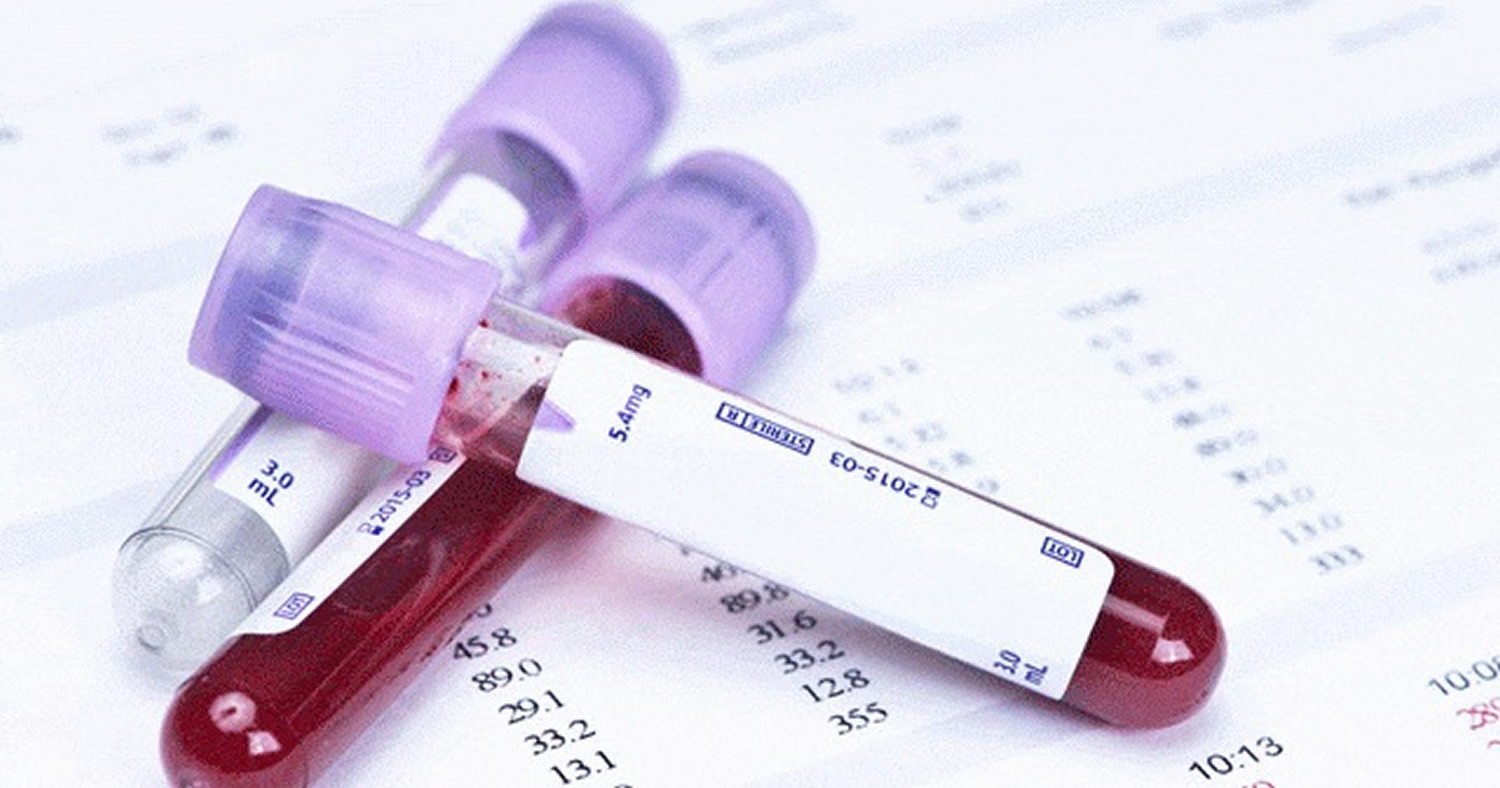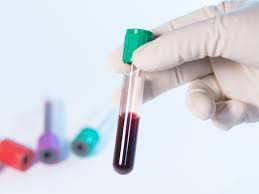Definisi
Pemeriksaan CA 19-9 berperan untuk mengukur kadar protein CA 19-9 dalam sampel darah. CA 19-9 juga dikenal sebagai antigen kanker 19-9. Protein ini dibentuk berbagai sel di tubuh, termasuk oleh beberapa sel kanker dan sel tubuh yang sehat.
CA 19-9 berfungsi sebagai penanda tumor atau tumor marker, dan penanda ini bisa ditemukan dalam jaringan, darah, atau cairan tubuh lainnya. Penanda tumor bisa membantu menunjukkan adanya kanker atau beberapa kondisi selain keganasan tertentu pada seseorang.
Meskipun sejumlah kecil CA 19-9 bisa ditemukan dalam darah orang yang sehat, peningkatan kadar CA 19-9 di tubuh bisa menjadi tanda adanya kanker pankreas. Namun tidak hanya kanker pankreas, kadar CA 19-9 yang meningkat juga dapat menandakan adanya suatu jenis kanker lain atau penyakit selain keganasan pada seseorang. Kondisi lain selain kanker yang bisa membuat CA 19-9 meningkat adalah infeksi organ hati, kandung empedu, dan pankreas, atau gangguan seperti batu empedu dan sirosis hati.
Karena peningkatan kadar CA 19-9 bisa merujuk pada beragam kondisi, pemeriksaan ini umumnya tidak digunakan sendirian dalam proses skrining atau diagnosis kanker. Sebaliknya, pemeriksaan ini biasanya dilakukan bersama pemeriksaan diagnostik lainnya, seperti pencitraan, yang dimanfaatkan untuk memantau kekambuhan penyakit atau respons pengobatan pada pasien.
Kami juga memiliki artikel mengenai kanker pankreas yang bisa Anda baca di sini: Kanker Pankreas - Definisi, Penyebab dan Faktor Risiko.
Indikasi
Terdapat berbagai indikasi dilakukannya pemeriksaan CA 19-9 pada seseorang, di antaranya:
Diagnosis Kanker dan Kondisi Medis Lainnya
Peningkatan kadar CA 19-9 dapat mengindikasikan adanya kanker pankreas dan keganasan tertentu pada saluran cerna. Kondisi selain keganasan seperti sirosis (jaringan parut) organ hati juga bisa menyebabkan peningkatan kadar CA 19-9. Namun, karena ada berbagai kondisi yang bisa memengaruhi kadar penanda tumor ini, umumnya pemeriksaan ini tidak menjadi satu-satunya pemeriksaan yang diandalkan dalam mendiagnosis kanker. Biasanya, hasil pemeriksaan CA 19-9 akan dipadukan bersama hasil pemeriksaan diagnostik lain, seperti pencitraan dan prosedur biopsi (pengambilan sampel jaringan untuk diperiksa apakah jaringan tersebut merupakan kanker atau tidak), untuk memastikan adanya kanker atau kondisi medis lainnya pada seseorang.
Menilai Efektivitas Pengobatan Kanker
Setelah kanker didiagnosis, pemeriksaan kadar CA 19-9 secara rutin dapat membantu dokter dalam mengetahui bagaimana respons tubuh pasien terhadap pengobatan kanker yang diberikan. Sebagai contoh, pada pasien kanker pankreas, kadar CA 19-9 yang menjadi dasar atau nilai referensi biasanya ditentukan setelah diagnosis kanker. Selanjutnya, kadar CA 19-9 yang didapat selama atau setelah pengobatan akan dibandingkan dengan nilai referensi kadar CA 19-9. Pemantauan kadar CA 19-9 secara berkala pada pasien kanker bisa membantu dokter dalam mengetahui efektivitas pengobatan yang sudah diberikan. Selain itu, pemeriksaan juga membantu dalam menyesuaikan strategi pengobatan yang diberikan pada pasien.
Memperkirakan Prognosis Kanker
Derajat peningkatan kadar CA 19-9, baik saat pasien mendapat diagnosis penyakit maupun setelah pengobatan, menjadi salah satu faktor yang bisa memberi informasi mengenai prognosis atau prediksi perkembangan penyakit pasien kepada dokter. Proses dalam mengetahui kemungkinan perkembangan penyakit dipengaruhi oleh faktor-faktor seperti stadium kanker, kondisi medis lain yang juga dimiliki oleh pasien, dan status kesehatan pasien secara keseluruhan. Dengan mengintegrasikan pemeriksaan kadar CA 19-9, dokter dapat memperkirakan perkembangan penyakit dan menyesuaikan pengobatan pasien.
Pemantauan Kekambuhan Kanker
Pada pasien kanker pankreas yang telah menjalani pengangkatan jaringan kanker dengan pembedahan, pemeriksaan kadar CA 19-9 bisa digunakan untuk mencari tanda kemungkinan kambuhnya penyakit di kemudian hari. Dengan memeriksa kadar CA 19-9 secara berkala setelah pengobatan, dokter bisa memeriksa indikasi kekambuhan kanker, sehingga pasien bisa cepat mendapat pengobatan sebelum terlambat.
Kontraindikasi
Tidak ada individu yang dikontraindikasikan dalam melakukan pemeriksaan kadar CA 19-9 dalam darah; setiap orang bisa menjalani pemeriksaan darah untuk memantau kadar CA 19-9 dalam tubuhnya.
Persiapan Sebelum Pemeriksaan
Tidak ada persiapan sebelum pemeriksaan CA 19-9 yang akan dilakukan. Pastikan agar dokter Anda mengetahui obat-obatan atau suplemen yang sedang Anda konsumsi. Perlu atau tidaknya Anda untuk berhenti mengonsumsi obat-obatan ini sebelum pemeriksaan dilakukan bergantung pada instruksi yang diberikan oleh dokter Anda.
Prosedur Pemeriksaan
Tenaga kesehatan akan mengambil sampel darah yang dibutuhkan untuk pemeriksaan dari pembuluh vena, umumnya dari vena di lengan Anda, menggunakan jarum suntik kecil. Setelah jarum dimasukkan, sejumlah darah akan diambil dan dimasukkan ke dalam tabung reaksi. Anda mungkin merasa sedikit nyeri saat jarum dimasukkan atau dikeluarkan.
Nilai Normal dan Abnormal
Kadar CA 19-9 diukur dalam satuan U/mL atau unit per mililiter, dan pada hasil pemeriksaan interpretasi tes juga bisa dilampirkan, yang menunjukkan apakah hasil tes tersebut berada dalam kisaran normal atau tidak normal.
Kadar CA 19-9 yang normal biasanya berada dalam rentang 0-37 U/mL. Kadar yang meningkat umumnya dikaitkan dengan kanker pankreas; Namun, kadar yang tinggi juga dapat ditemukan pada orang yang sehat dan tidak memiliki penyakit tertentu. Penting juga untuk diketahui bahwa peningkatan kadar CA 19-9 tidak secara pasti menandakan adanya kanker pada seseorang.
Hasil dan Saran (Pemeriksaan Lanjutan)
Pasien kanker yang sedang dalam pengobatan bisa menjalani pemeriksaan CA 19-9 secara rutin untuk memantau perkembangan penyakit dan bagaimana efek pengobatan terhadap penyakitnya. Interpretasi kadar CA 19-9 bisa dilihat di bawah ini:
- Peningkatan kadar CA 19-9: Bisa menunjukkan tumor semakin berkembang atau menjadi tanda pengobatan yang tidak efektif. Biasanya dilakukan pemeriksaan lebih lanjut untuk memastikan hasil temuan dari tes ini.
- Penurunan kadar CA 19-9: Kadar CA 19-9 yang menurun bisa menjadi tanda bahwa jaringan tumor mengecil dan pengobatan yang diberikan berjalan efektif.
- Kadar CA 19-9 stabil: Tidak adanya perubahan kadar CA 19-9 bisa menunjukkan bahwa tidak ada perubahan pada kondisi pasien, baik itu perbaikan atau perburukan penyakit.
- Kadar CA 19-9 menurun lalu meningkat: Pola ini bisa menunjukkan adanya kekambuhan atau penyakit menjadi semakin berat. Perlu dilakukan pemeriksaan lebih lanjut untuk mencari tahu penyebab utama dari meningkatnya kadar CA 19-9.
Pada beberapa orang, kadar CA 19-9 yang tinggi bisa ditemukan pada individu yang sehat dan tidak memiliki kanker. Namun, ada beberapa penyakit yang bisa menyebabkan peningkatan kadar CA 19-9 pada seseorang, seperti:
- Pankreatitis (radang pankreas)
- Gangguan organ hati
- Batu empedu
- Penyumbatan atau infeksi saluran empedu
- Fibrosis kistik (kelainan genetik yang memengaruhi paru-paru, sistem pencernaan, dan organ lainnya)
Pada kasus seperti di atas, bila diperlukan, dokter akan melakukan pemeriksaan lebih lanjut untuk mencari tahu penyebab utama dari peningkatan kadar CA 19-9 dan untuk memandu dalam memberikan pengobatan yang tepat.
Konsultasikan ke Dokter yang Tepat
Hasil pemeriksaan CA 19-9 bisa dipengaruhi oleh berbagai faktor seperti usia, jenis kelamin, riwayat kesehatan, dan status kesehatan secara keseluruhan. Anda bisa berkonsultasi dengan dokter atau dokter spesialis onkologi mengenai interpretasi dari hasil tes Anda. Dokter bisa memberi tahu bagaimana arti dari hasil tes Anda dan hubungannya dengan kondisi kesehatan atau penyakit Anda.
Mau tahu informasi seputar hasil pemeriksaan laboratorium, radiologi, dan lainnya? Cek di sini, ya!
- dr Hanifa Rahma
CA 19 - 9 Tests. (2021). Retrieved 26 September 2022, from https://emedicine.medscape.com/article/2087513-overview
Carbohydrate Antigen 19 - 9 (CA 19 - 9). (2022). Retrieved 26 September 2022, from https://www.mayocliniclabs.com/test-catalog/Overview/9288
Carbohydrate Antigen 19 - 9 (CA19-9). (2022). Retrieved 26 September 2022, from https://cancer.ca/en/treatments/tests-and-procedures/carbohydrate-antigen-19-9-ca-19-9
CA 19-9. (2022). Retrieved 26 September 2022, from https://www.urmc.rochester.edu/encyclopedia/content.aspx?contenttypeid=167&contentid=ca_19_9
Cancer Antigen 19-9. (2021). Retrieved 26 September 2022, from https://www.testing.com/tests/cancer-antigen-19-9/
CA 19-9 Blood Test (Pancreatic Cancer). (2020). Retrieved 26 September 2022, from https://medlineplus.gov/lab-tests/ca-19-9-blood-test-pancreatic-cancer/












